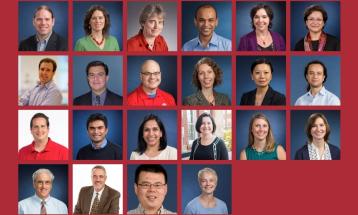Worcester Polytechnic Institute (WPI) today announced that 22 full-time faculty members have been promoted in academic rank; five of these faculty members were also granted tenure.
“On behalf of the WPI Board of Trustees, I offer my sincere congratulations to this remarkable group of talented and accomplished educators, scholars, and researchers who are changing the world in positive ways and preparing our students to be tomorrow’s leaders,” said WPI President Laurie Leshin. “It is especially gratifying to welcome 13 faculty members to the rank of professor and teaching professor, and to see that more than half of this esteemed group are women. This is an extraordinary milestone, and one of which we can all be proud.”
Added WPI Provost ad interim Wole Soboyejo, "We are proud of our colleagues who are celebrating these well-deserved career milestones. Through their work on campus and around the world, they are enhancing WPI’s international reputation and demonstrating, every day, why the university is regarded as both a global leader in project-based learning and a thriving, purpose-driven community of researchers and educators.”

Dirk Albrecht has been awarded tenure and promoted to associate professor of biomedical engineering. Albrecht’s research focuses on microtechnology and neuroscience. In particular, he develops quantitative tools to study how neural signals govern behavior. His current research interests include investigating the molecular and genetic basis of neural circuit function and dynamics, developing bioinformatic tools for analysis of high-content neural data, and designing rapid cellular and whole-organism screens for therapeutic drugs and genetic modulators affecting neural disease. His work has been funded by Burroughs Wellcome Fund, the National Science Foundation, and the National Institutes of Health. A member of the faculty since 2012, Albrecht earned BS degrees in biochemistry and in cell biology and bioengineering, and MS and PhD degrees in bioengineering, at University of California, San Diego. He was a postdoctoral fellow at The Rockefeller University before joining WPI.
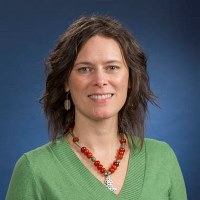
Melissa Belz has been promoted to associate teaching professor in the Interdisciplinary and Global Studies Division. A geographer whose research explores the cultural landscape, she studies how and why places change and why certain traditions endure. Her primary focus is vernacular architecture, or traditional regional design. In the Indian Himalaya, for example, she has studied the connections between forest policy and cash crop markets and the decline in architectural woodcarving and vernacular design. Belz spent 10 years working in the field of architecture before earning a PhD in geography from Kansas State University. In 2011 she received the Society of Women Geographers Pruitt National Fellowship. At WPI she teaches ID2050, the course that prepares students for off-campus project experiences, and has advised Interactive Qualifying Project teams at project centers in Denmark, Iceland, Namibia, the United States, and other locations.
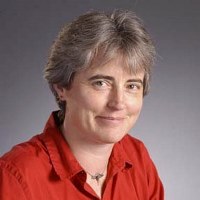
Nancy Burnham has been promoted to professor of physics. Burnham is one of the leading researchers in the field of atomic force microscopy. The atomic force microscope (AFM) uses a tiny cantilever with a fine point at one end to scan the contours of surfaces at the scale of nanometers. At that scale, it can image individual molecules and detect minute forces (such as the force a bacterium exerts to cling to a cell wall). In addition to advancing the science of nanotechnology and the AFM, Burnham teaches others to use this versatile tool for their own studies and has a YouTube channel on the use of the instrument. A fellow of AVS (American Vacuum Society), she received its Nanotechnology Recognition Award in 2001. The following year she was the Institute of Physics of Ireland Lecturer. In 2014, when Nanotechnology, the first peer-reviewed journal in nanoscale science and technology, selected the 25 most important papers it has published since 1990, two were co-authored by Burnham. She earned MS and PhD degrees in physics at the University of Colorado and was a National Research Council Postdoctoral Fellow at the Naval Research Laboratory and von Humboldt Fellow at Forschungszentrum Jülich in Germany before joining the WPI faculty.

Raghvendra Cowlagi has been awarded tenure and promoted to associate professor of mechanical engineering and aerospace engineering. Cowlagi’s research focuses on problems related to the emerging field of autonomous vehicles. In particular, he studies optimal motion planning and control strategies, develops artificial intelligence algorithms that will allow vehicles to be controlled with natural language commands, and explores the safety implications of large-scale systems involving multiple autonomous vehicles. He was the first WPI faculty member to receive an Air Force Young Investigator Award (in 2016), with which he is developing methods for teams of aerial and terrestrial unmanned vehicles to cooperate as they respond to emergencies. Before joining WPI, he was guidance, navigation, and controls engineer at Aurora Flight Sciences Corporation and served as a postdoctoral associate at MIT. He received a PhD in aerospace engineering from Georgia Institute of Technology.

Jennifer deWinter has been promoted to professor of humanities and arts. In addition to teaching rhetoric, deWinter is director of WPI’s Interactive Media and Game Development Program and co-director of the Professional Writing Program. Her research interests include computer game theory, computer game development, and cultural studies, with a particular interest in how culture, a local phenomenon, moves internationally. She is a member of the Learning Games Initiative, a group of scholars and game designers dedicated to the general study of games and their use to teach concepts and skills, and has developed numerous games with the group. In 2014 she co-founded and launched the Influential Game Designers Series with Bloomsbury Academic Press, for which she wrote the inaugural book: Shigeru Miyamoto: Super Mario Bros., Donkey Kong, The Legend of Zelda (2015). She has also co-edited two collections: Video Game Policy: Production, Distribution, and Consumption, and Computer Games (Routledge, 2016), and Technical Communications: Critical Methods and Applications at the Intersection (Routledge, 2014). She joined WPI in 2009 after receiving a PhD in rhetoric, composition, and teaching English from the University of Arizona.
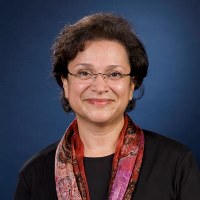
Soussan Djamasbi has been promoted to professor in WPI’s Foisie Business School. The founder and director of WPI’s User Experience and Decision Making Lab, she conducts research on the use and impact of technology in organizations. Using a variety of subjective and objective measures, along with physiological measures, including eye-tracking, she focuses on two broad areas. Her work in decision science explores factors that can influence the effectiveness of systems used for organizational decision-making. Her user experience research looks at how people experience and use technology to gain insight into how to design more effective and successful systems. Djamasbi received the WPI Board of Trustees’ Award for Outstanding Academic Advising in 2018. She earned a PhD in communications and information science from the University of Hawaii-Manoa and taught computer science and computer information systems at Hawaii Pacific University before joining the WPI faculty in 2004.

Gregory Fischer has been promoted to professor of mechanical engineering and robotics engineering. Fischer, who was designated a William Smith Dean’s Professor in 2018, is director of WPI’s Automation and Interventional Medicine Laboratory (AIM Lab). He is also director of WPI’s PracticePoint research and development facility for medical cyberphysical systems, a membership-based research, development, and commercialization alliance founded to advance healthcare technologies. Recently named an inaugural senior member of the National Academy of Inventors, he conducts research and development in areas that include medical and surgical robotics, wearable assistive and rehabilitative robotics, and socially assistive robotics. With over $8 million in funding from the National Science Foundation and the National Institutes of Health, he has developed innovative image-guided surgical robotic systems designed to operate inside MRI (magnetic resonance imaging) scanners. One such system assists surgeons in conducting prostate cancer biopsies and another (developed with Julie Pilitsis at Albany Medical College) will enable more effective treatment of metastatic brain tumors. His research has resulted in eight granted U.S. patents, a number of which have been licensed by AiM Medical Robotics, a start-up that will commercialize his innovations in medical and MRI-compatible robotics. Fischer earned MSE degrees in electrical engineering and mechanical engineering and a PhD in mechanical engineering at Johns Hopkins University, where he received a Predoctoral Prostate Cancer Training Fellowship and a New Investigator Award from the Congressionally Directed Medical Research Program.
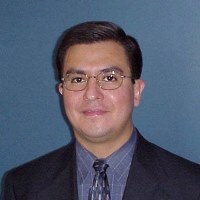
Cosme Furlong-Vazquez has been promoted to professor of mechanical engineering. The director of WPI’s Center for Holographic Studies and Laser micro-mechaTronics, Furlong-Vazquez uses a variety of cutting-edge optical and holographic techniques to conduct research in such areas as the development of fiber optic sensors, nondestructive testing, and materials characterization. With continuous support from the National Institutes of Health, he has pursued a longtime research project aimed at developing a more precise technique for diagnosing hearing problems by imaging the middle- and inner ear using holographic techniques. His clinical partner is the Massachusetts Eye and Ear hospital in Boston, where he has tested prototypes and conducted basic research on the mechanics of hearing. He is also a faculty leader in the Center for Advanced Research in Drying (CARD). Run jointly with the University of Illinois at Urbana-Champaign, it is the first center in the United States dedicated to developing energy-efficient technologies for drying moist, porous materials. Cosme-Furlong has received WPI’s Sigma Xi Junior Researcher award and held the Morgan and Russell M. Searle Distinguish Instructorships, He received MS and PhD degrees in mechanical engineering from WPI.
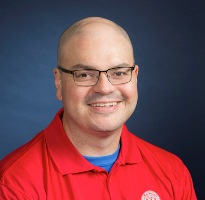
Michael Johnson has been promoted to associate teaching professor of mathematical sciences. A member of the faculty since 2003, he completed a PhD in economics at Clark University, where his dissertation explored theoretical models for free and open source software. His current research interests include industrial organization, game theory, and graph theory and probability. At WPI, he has taught calculus, statistics, and probability at the undergraduate and graduate levels, and has made use of advances in technology, including course-capturing systems, to aid in student learning. He is co-principal investigator on a project funded by a grant from WPI’s Educational Development Center aimed at advancing students’ levels of competency in pre-calculus skills. He also serves as a teaching mentor and guide to faculty members and postdoctoral scholars in the Mathematical Sciences Department.

Fiona Levey has been promoted to associate teaching professor in mechanical engineering. Her research interests include phase diagrams, phase transformations, and shape memory. Before joining the WPI faculty in 2011, she conducted research in the United States and at the Applied Research and Development Center at Mintek in South Africa focused on the pseudo-binary and ternary phase diagrams of alloys made from aluminum, copper, and gold, and the transformation behaviors and crystal structures of selected phases of those alloys. Her patent on a ferro-alloy casting process using co-current streams of water and molten metal has been adopted by industry. Since joining the WPI faculty she been actively involved in the ASM Materials Experience, which aims to attract high school sophomores and juniors into STEM-related fields. She earned BSc and PhD degrees in physical metallurgy and materials science from the University of the Witwatersrand in Johannesburg.
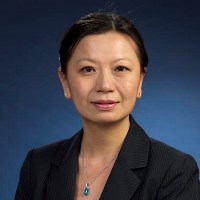
Jianyu Liang has been promoted to professor of mechanical engineering. The director of WPI’s Nanomaterials and Nanomanufacturing Laboratory, her research in materials science and engineering includes work on nanomaterials, nanofabrication, and nanomanufacturing, including research that explores the physics of interfaces between the nanometer and micron scales. Her research focus areas include materials for lithium-ion batteries and fuel cells. Her work in nanobiotechnology has included research on nano-biomaterials for controlled drug and gene delivery. She has also investigated electrochemical techniques for smoothing and polishing the surfaces of parts made with additive manufacturing to reduce their vulnerability to fatigue and cracking. She is currently co-principal investigator for a project funded by a $1.15 million award from the Department of Defense’s Strategic Environmental Research and Development Program that aims to develop a mobile foundry that military units can use in the field to make new parts for vehicles and other equipment by melting down scrap metal. Liang is a member of WPI’s China Hub and is co-director of the Center for Global Public Safety, a joint research effort with Tsinghua University in China that addresses natural and manmade public safety threats. She earned a PhD in electrical engineering at Brown University.
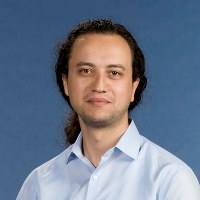
Cagdas Onal has been awarded tenure and promoted to associate professor of mechanical engineering and robotics engineering. Much of his research focuses on soft robotics, a field that uses soft, pliable materials and special control algorithms that make robots well suited to operate safely in close proximity to people and to fill niches where traditional rigid robots are not well-suited (for example, moving, snake-like, though rubble to assist in search-and-rescue operations). He received a National Science Foundation CAREER Award to pursue a novel approach to the design of soft robots that draws on the techniques of origami, or paper folding, to create robots that combine softness with rigidity. Origami-inspired soft robots would be capable of lifting heavy loads, something other soft robots cannot do. He earned a PhD in mechanical engineering at Carnegie Mellon University and completed a three-year appointment as a postdoctoral associate in the Computer Science and Artificial Intelligence Laboratory at MIT before joining WPI.

Barry Posterro has been promoted to associate teaching professor of mathematical sciences. A faculty member in WPI’s Center for Industrial Mathematics and Statistics, his focus as an educator is actuarial mathematics and he advises students in WPI’s actuarial mathematics and financial mathematics programs. He earned a BS in mathematical sciences, an MS in financial mathematics, and an MS in applied mathematics, all at WPI. As an undergraduate, he won the Senior Math Award, the Stephen Salisbury Award, and the Provost's MQP Award, and he received a Robert H. Goddard Fellowship as a graduate student. Before joining the WPI faculty in 2016, he was associate director of equity risk at Delaware Life Insurance. With expertise in actuarial science and financial risk management, he is a Chartered Financial Analyst (CFA), a Financial Risk Manager (FRM), and an associate of the Society of Actuaries.

Pratap Rao has been awarded tenure and promoted to associate professor of mechanical engineering. Rao’s research focuses on developing new materials that can become the building blocks of economical, large-scale, clean energy technologies, such as inexpensive but efficient solar cells that either generate electricity or chemical fuels. He is also exploring methods for synthesizing new materials rapidly, inexpensively, and at large scales to match the scale of the world’s growing energy problem. These new techniques include synthesis methods for nanostructured thin films, including vapor and solution deposition and flame synthesis. His research is guided by the notion that the key to creating effective energy conversion materials is controlling the flow of energy, electricity, and matter at the nanoscale by careful design of the shape, size, and composition of materials at the same scale. Rao’s research has been funded by significant awards from the National Science Foundation (NSF) and the Massachusetts Clean Energy Center. One NSF-funded project on which he is co-principal investigator aims to develop a lower-cost catalyst for an electrochemical process that can generate hydrogen from water. With another, he is exploring the development of new materials composed of metal oxides that may make it easier and less expensive to manufacture solar cells. Rao earned a BS in mechanical engineering at WPI and a PhD in mechanical engineering at Stanford University.

Reeta Rao has been promoted to professor of biology and biotechnology. She studies the biology of fungal diseases, particularly those caused by Candida, a species of fungi prevalent in humans that are responsible for oral thrush, ear infections, and vaginitis, but which are also a leading cause of serious illnesses and death among hospitalized patients. Rao and her research team use biochemical, molecular-genetic, and genomic tools to study strategies the fungal pathogens use to infect their hosts, identify how the pathogens interact with the host’s immune system, and explore how fungal infections are transmitted in the clinic. They also use high-throughput screening, a drug-discovery process used in the pharmaceutical industry to quickly test the biological or biochemical activity of a large number of compounds, to search for new therapeutics for fungal diseases, which are notoriously difficult to treat. Along with her appointment at WPI, Rao is a visiting scientist at the Broad Institute of MIT and Harvard and a member of the Institute for Drug Resistance at the University of Massachusetts Medical School. She was elected a fellow of the American Academy of Microbiology, the honorific leadership group within the American Society for Microbiology, in 2018. Before joining WPI in 2004, she was a postdoctoral researcher at the Whitehead Institute, supported by a National Institutes of Health (NIH) Ruth L. Kirschstein postdoctoral fellowship. She earned a PhD in biochemistry and molecular biology at Pennsylvania State University Medical College.
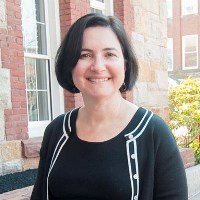
Jennifer Rudolph has been promoted to professor of humanities and arts. A scholar of modern Chinese political history, she is the author of the highly regarded book Negotiated Power in Late Imperial China: The Zongli Yamen and the Politics of Reform (2008, Cornell East Asia Series) and an editor, with Michael Szonyi, of The China Questions: Critical Insights into a Rising Power (Harvard University Press, 2018), which provides a window onto the challenges China faces today and the uncertainties its meteoric ascent on the global horizon has provoked. She is director of WPI’s China Hub, which was founded in 2013 to advance on-campus and off-campus knowledge of China through WPI’s project based learning curriculum, programmatic offerings, extracurricular activities, and education and research programs between WPI and Chinese partners, and to foster innovation and entrepreneurship by supporting new research collaboration ventures between WPI and peers in greater China. She and other China Hub colleagues have received multiple grants to build a China program at WPI that includes Chinese language courses, project opportunities, a Chinese studies minor, and joint programs with Chinese partner institutions. She is also director of WPI’s Hangzhou, China Project Center. She has been an associate in research at the Fairbank Center for East Asian Research at Harvard University since 2001 and is a member of the National Committee on United States–China Relations. Rudolph earned MA and PhD degrees in history from the University of Washington and joined WPI in 2007 as an associate professor after serving as an assistant professor at the University of Albany.

Jeanine Skorinko has been promoted to professor of social science and policy studies. The director of WPI’s undergraduate Psychological Science Program, she is a social psychologist who explores how factors in our social environment influence decisions and interpersonal interactions. In WPI’s Social Psychology Inquiry Lab, she studies how external and internal influences (for example, subtle contextual signs, stereotypes and stigmas, perceptions of others, the ability to perspective take, cultural orientation) affect perceptions, decisions, and self-views, especially in the legal and organizational domains. The past president and current treasurer of the New England Psychological Association, she was a member of the steering committee that planned NEPA's 2012 annual meeting, which was held at WPI. That same year she received WPI's Romeo L. Moruzzi Young Faculty Award for Innovation in Undergraduate Education in recognition of her innovative pedagogical approaches to psychology instruction at WPI. As principal investigator for a $1 million ADVANCE grant from the National Science Foundation (NSF), she is leading a team of investigators from multiple disciplines at WPI in a study of the university’s faculty promotion processes with the goal of identifying areas of bias that may be impacting female faculty members and implementing more equitable policies and practices. She received MA and PhD degrees in social psychology from the University of Virginia.

Lyubov Titova has been granted tenure and promoted to associate professor of physics. A member of WPI’s Energy Research Group, she conducts research that makes use of ultrafast terahertz and optical spectroscopy. Current projects include using terahertz spectroscopy to probe the dynamics of photo-excited charge carriers in nanomaterials, with applications in photovoltaics and solar fuel production; using terahertz pulses and ultrafast optical techniques to study intermolecular dynamics in liquids; and investigating interactions of intense terahertz pulses with cells, tissues and their constituents, with a goal of development of novel diagnostic and therapeutic applications. Titova received a National Science Foundation CAREER Award to study a new class of exotic two-dimensional materials with extraordinary properties that may make them ideal candidates for new types of solar cells. She received MS and PhD degrees in physics at the University of Notre Dame and served as a research associate and a postdoctoral fellow in the Ultrafast Nanotools Laboratory at the University of Alberta, where she received the Avadh Bhatia Women's Postdoctoral Fellowship.
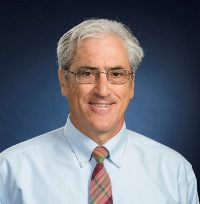
Robert Traver has been promoted to teaching professor in undergraduate studies. Traver joined the WPI community in 2003 as principal of the Massachusetts Academy for Mathematics and Science at WPI, where he established a science and technical writing course. In his prior 27-year career in education, he oversaw the Harvard-Radcliffe Undergraduate Teacher Education Program, served as a lecturer on education at Harvard’s Graduate School of Education, and developed science curriculum standards and professional development institutes for the Boston Public Schools, among numerous other accomplishments. As a member of the WPI faculty, he has developed and administered science and engineering education programs and programs involving teaching and training of teachers. His current focus is on project-based undergraduate engineering education with an emphasis on project design and delivery for sustainable development. He established the Asuncion (Paraguay) Project Center and helped found the Great Problems Seminar program, in which he continues to participate. As part of WPI’s Institute on Project-Based Learning, he coaches university faculty teams, on and off campus, and offers a concurrent workshop on writing and undergraduate project-based learning. He also advises two student clubs, the award winning Global Humanitarian Alliance and the Worcester Poverty Club. He holds an EdD in teaching, curriculum and learning environments from the Harvard Graduate School of Education.

Richard Vaz has been promoted to professor of electrical and computer engineering. He joined the WPI faculty in 1987 after completing BS, MS, and PhD degrees in electrical engineering at the university and holding systems and design engineering positions with Raytheon Company, GenRad, and the MITRE Corporation. Over time, Vaz focus at WPI turned to interdisciplinary teaching and learning and international education as he became increasingly involved in WPI’s undergraduate project. As dean of Interdisciplinary and Global Studies, he oversaw the expansion of WPI’s Global Projects Program, from 18 global project center locations in 2006 to 46 locations in 2015, and helped drive a significant increase in student participation in off-campus projects and a doubling of faculty participation. He also oversaw efforts to evaluate and enhance the quality of WPI’s interdisciplinary research project requirement, directing a major study of WPI alumni, conducted by the UMass Donahue Institute, that showed that project-based learning significantly enhanced their professional abilities and advancement, interpersonal and communications skills, and worldviews. In 2015 he led the development and delivery of WPI’s first Institute on Project-Based Learning, which helps other colleges and universities make progress implementing project-based learning on their campuses. In 2016, he was named the inaugural director of WPI’s Center for Project-Based Learning, which offers the institute, along with offers custom workshops and seminars and on-site consultation by project-based learning experts. The recipient of WPI’s Board of Trustees’ Awards for Outstanding Teaching and Outstanding Academic Advising and a senior fellow of the Association of American Colleges and Universities, he was one of four WPI faculty members honored by the National Academy of Engineering in 2017 with the Bernard M. Gordon Prize for Innovation in Engineering and Technology Education.
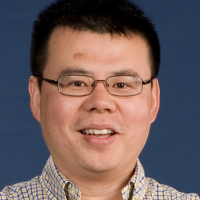
Yan Wang has been promoted to professor of mechanical engineering. He currently holds the title of William Smith Dean’s Professor at WPI. A materials engineer and director of WPI’s Electrochemical Energy Laboratory, he has conducted a wide range of research projects related to batteries, including the development of more energy-dense flow batteries for grid storage, new types of cathodes and anodes for lithium-ion batteries, new battery manufacturing techniques, and a groundbreaking process for recycling lithium-ion batteries. With funding from the National Science Foundation, the Massachusetts Clean Energy Center, and the United States Advanced Battery Consortium, a collaborative organization of FCA US LLC (Chrysler), Ford Motor Company, and General Motors, he and his research team invented a method for breaking down lithium-ion batteries and recovering the powders that make up their cathodes. The powders can be dissolved and then new cathode materials, of any desired chemistry, can be precipitated out of the solution, while the other materials that make the batteries are separated and reused. The process overcame a major technologic barrier that had prevented the vast majority of batteries from being recycled. The patented process has been licensed by Battery Resourcers, a company co-founded by Wang, which is currently operating a pilot plant in Worcester. Earlier this year, Wang became an inaugural member of ReCell, a national lithium-ion battery recycling research and development center established by the U.S. Department of Energy. Wang joined WPI in 2010 after completing a postdoctoral appointment at MIT, where he participated in the design of a lithium-ion microbattery. He holds a PhD in engineering materials from the University of Windsor in Ontario.

Kristin Wobbe has been promoted to professor of chemistry and biochemistry. She joined WPI in 1995 as WPI’s first full-time professor of biochemistry after earning a PhD in biochemistry at Harvard University, completing a postdoctoral position at Harvard Medical School, and then spending three years as a National Science Foundation postdoctoral fellow at the Waksman Institute at Rutgers University and Massachusetts General Hospital. During that time, she began research on the molecular interactions that determine the outcomes of plant/pathogen interactions using a model system consisting of Arabidopsis thaliana, a relative of cruciferous crop plants, and turnip crinkle virus. In 2007, as a member of WPI’s Interdisciplinary Plant Research Group, she was one of 30 WPI faculty members in four academic departments who moved their research programs into the state-of-the art laboratories in the new Life Sciences and Bioengineering Center at Gateway Park. She was named the Leonard P. Kinnicutt Assistant Professor of Chemistry in 1999 and in 2001 she received the Romeo L. Moruzzi Young Faculty Award for Innovation in Undergraduate Education. In 2008 she was installed as the first Metzger Professor of Chemistry. She was appointed interim head of the Department of Chemistry and Biochemistry 2007 and began a regular-term appointment as department head the following year. In 2007, Wobbe co-developed and co-taught Feed the World, one of WPI’s inaugural Great Problems Seminar (GPS) programs. Later, as associate dean of undergraduate studies, she oversaw a significant expansion of the GPS program, which brought project-based learning to the first year of WPI’s curriculum. In January, Project-Based Learning in the First Year, a book co-edited by Wobbe and Elisabeth Stoddard, assistant teaching professor in Undergraduate Studies, was released by Stylus Publishing.
